
Understanding sustainable packaging Sustainability is no longer a marketing jargon. Businesses are developing and using packaging materials and involving increased use of life cycle inventory to reduce the ecological footprint. The significant momentum gained by the circular economy has drawn the attention of packaging giants and the government to respond to concerns associated with packaging waste and its impact on the environment. As an implementation step, businesses are adopting packaging solutions made from seaweed and plants, honeycomb papers and plant fibres and pulp as an alternative to non-recyclable packaging materials. This significantly reduces environmental waste and improves waste management processes.
Every year, 8 million metric tons of plastic enter the ocean, as per the Ocean Conservancy Survey. This waste is piled on an estimated 150 million metric tons of waste already floating in oceans globally. The increasing use of nonrecyclable packaging solutions impacts aquatic life and leads to high carbon emissions. Some progressive countries like Germany, France and the United Kingdom are deploying robust recycling solutions. Moreover, Asian countries like Thailand and India have already imposed a nationwide ban on single-use plastic bags to reduce environmental exposure to plastic waste.
Single-use packaging is taking a huge toll on our environment. Almost all food containers we see in grocery stores typically made of glass, metal, plastic, or paperboard cannot be reused for their original function, such in the case of aluminium cans and most plastic bags. However, food contamination is a big consideration. Though some types of packaging might be suitable to be reused, some experts have raised hygiene concerns in replacing single-use food service ware with reusable items, both within the food retail and the restaurant industries.
This story is from the MAY - 2023 edition of Food & Beverages Processing.
Start your 7-day Magzter GOLD free trial to access thousands of curated premium stories, and 9,000+ magazines and newspapers.
Already a subscriber ? Sign In
This story is from the MAY - 2023 edition of Food & Beverages Processing.
Start your 7-day Magzter GOLD free trial to access thousands of curated premium stories, and 9,000+ magazines and newspapers.
Already a subscriber? Sign In

Therapeutic Use Of Indian Winter Cherry (Ashwagandha)
Ashwagandha is one of the most important herbs in Ayurveda, which is a traditional form of alternative medicine based on Indian principles of natural healing. Ashwagandha is a small, woody shrub in the Solanaceae family that grows about two feet in height.
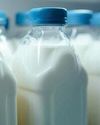
The Dairy Chain Revolution: Ensuring Freshness and Efficiency
Dairy products are an integral part of the food processing industry, forming milk, cheese, yogurt, and butter are highly perishable and demand meticulous care to preserve their quality and safety throughout their journey from farm to consumer.
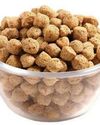
Plant-Based Proteins from Soybean: A Comprehensive Exploration
Introduction - In recent years, the global food landscape has witnessed a remarkable shift toward plant-based diets, driven by a growing awareness of health, environmental sustainability, and ethical considerations.
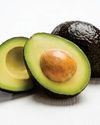
Avocado: The Green Ally in the Fight Against Diabetes
In a world inundated with processed foods laden with excessive sugars, salts, and artificial additives, rates of diabetes across the world have been rising over the past decades link.
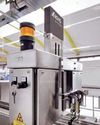
Inspection Technology from KHS: Precision and early detection for holistic line thinking
KHS GmbH continuously develops and modernizes its inspection technology.
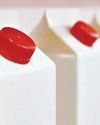
Packaging for the Future: How Aseptic Solutions are Transforming the Dairy Industry
Introduction - The Dairy Aseptic Packaging Market T is a dynamic and transformative sector within the rapidly evolving food and beverage industry.
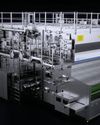
Sidel introduces its breakthrough bottle washer with powerful dual technology - Hydra Ultrasonic
With beverage bottlers requiring a solution that reduces production costs while improving their environmental footprint, Sidel has launched its new bottle washer which combines chemical and ultrasound technology for the highest performance. Sidel will unveil Hydra Ultrasonic for the first time at the international trade show, BrauBeviale.
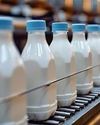
Revolutionizing Dairy Packaging: Technology & Innovations Shaping the Future
Dairy packaging plays a vital role in maintaining the quality and safety of a wide variety of products, including milk, butter, cheese, and yogurt.

Proost: Brewing Passion, Driving Innovation, Redefining Quality
In an exclusive conversation Mr. Tarun Bhargava, Co-Founder & CEO of Proost, speaks about the brand's inspiring journey, its unique approach to brewing, and the innovative strategies driving its success. From Proost's commitment to quality and sustainability to its adaptability in a dynamic market, Tarun shares insights into what makes Proost a standout in the beverage industry.
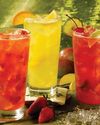
Non-Alcoholic Beverages: A Booming Industry Across Global Markets
The global non-alcoholic beverage market has been expanding steadily, with an estimated value of over USD 1 trillion as of 2023. This growth is expected to continue, fueled by a shift in consumer preferences toward healthier and more mindful consumption habits. The market encompasses a variety of products, including non-alcoholic beers, soft drinks, juices, and functional beverages like energy drinks and flavored waters.